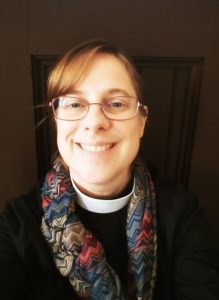Hollow Footsteps
There had been a notable uptick in anti-Semitic attacks in Europe. Alone on a lonely street in the heart of Paris, I wondered if just standing where I was could make me a target of either suspicion or of hate. The door to the Holocaust Memorial was locked, as only three or four people were allowed in at a time. The small groups entered a locked room, had their bags scanned, spoke with a guard, and passed through a metal detector. Once they had collected their possessions and spoken with a second guard, the door was unlocked, and they were allowed into the memorial. Then the entrance was unlocked . . . and it was my turn to experience the same screening.
The memorial itself, off the tourist path and apparently out of mind for local visitors, was almost as lonely as the security screening. My footsteps echoed in the hallways. The only person who spoke to me, past the security screening, was a receptionist who asked if I would like information in English or French. From there I found myself alone for some time in a darkened room with an eerie blue light. A single flame burned as the names of the victims were read off one by one in an unending cycle of remembrance.
In the next room were the photographs—men and women and children, most of them lost before their time. Then came the letters, the personal effects, Sabbath silver, the clothing and books and luggage; flotsam and jetsam of a normal life. There were the stars bearing the word “Juif.” “Jude.” “Jew.” Of course, there were also letters from ghettos and trenches and concentration camps.
I have visited three Holocaust memorials, but Paris was perhaps the most unsettling. This was where it happened, when France became occupied by the Nazis and her own citizens were deported to the camps. This was where ordinary people faced an extraordinary choice: to risk everything or to become darkness itself. Alone in that memorial, with only my thoughts and the stories of survivors themselves to rattle around in my head—this was the place where the narratives came dangerously and intimately alive.
Some narratives sear themselves into our memory such that we can relive them without warning, and with full and fresh emotional response. Our own traumas are like that, as are particular joys. Still, on rare occasions, the words of others are as vividly impactful on us. One such memory of mine is of the day a professor of modern Jewish thought told our class about a recent anti-Semitic attack on a young boy. His account was not graphic, just matter-of-fact. These kinds of things happened, and they were perpetrated by Christians, even falsely attributed to the name of Christ. I could hear my professor’s pain, as if what had happened to that boy had actually happened to him.
Decades-old memories and the recollection of that lonely Parisian memorial mingle in my mind and slow my thoughts. I recall my younger self’s stunned reaction to the professor’s story. Of course these things happened hundreds of years ago, but not here, not in America, not in our lifetime. I had never seen or heard of such a thing in the neighborhood where I grew up. Now, almost thirty years older, wiser me wishes she could say to younger me, “Of course you didn’t see that in your insulated little all-white all-Protestant home town.” I didn’t see xenophobia because there was no xenos (stranger) to see. I didn’t see anti-Semitism because there were no Semitic people in my world.
It is easy for us to deny the stories we simply do not see. This is what many in our world mean by racial or ethnic privilege: the ability of the culture’s majority to simply not see or hear the struggles of those outside our own, insulated communities. I did not have to witness anti-Semitism every day, and so I did not have to acknowledge that what was part of a dark history for me could still be an ever-present fear in the eyes of my neighbor. Instead of truly hearing my professor, himself a Holocaust survivor, share the heart-rending news that these wounds still exist, I could consign them to a past or far distant place.
In Hebrews, we are reminded, “Remain in brotherly love. Do not neglect to show love of the stranger” (13:1-2a, translation mine). Normally this passage is translated as “Do not neglect to show hospitality.” That is too passive for the demands of the Gospel. Something else is being asked here: love of one’s brothers (and sisters) and this second love of the stranger. Hospitality is an inward welcome; love of the stranger necessarily goes out to where the stranger is—where the story can be heard, and the trauma absorbed into otherwise unaffected hearts. Stranger-love is incompatible with an insular faith, the luxury of being shocked at the suffering of others when it lands on our doorstep.
Love of the stranger is also a temporary state. Though they may not know it, within the hearts of those who love them, strangers in a way become friends, though often friends unmet. I do not know what I went out to see that lonely afternoon in Paris. I don’t know if my desire to see the memorial in a land where it all happened was self-serving or wholesome. But as my footsteps echoed down those halls, and I was the stranger in that place, I recalled experiences I had never shared, and, somehow, I was not at all alone.










